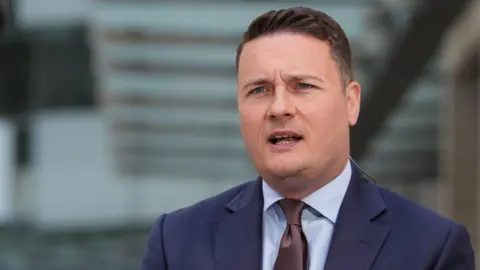In a significant move towards improving healthcare facilities, the UK government has announced a robust allocation of £102 million dedicated to the enhancement and expansion of GP (General Practitioner) surgeries. This initiative involves more than 1,000 surgeries across the nation, aimed at upgrading existing infrastructures and creating additional spaces to accommodate a growing patient base. As indicated by the Department for Health and Social Care, this funding marks the largest public investment in medical facilities in five years, reflecting a strategically vital shift in healthcare funding.
Health Secretary Wes Streeting stressed the importance of this investment, asserting that while the solutions may seem simple, they represent critical interventions that were long overdue. “These are simple fixes for our GP surgeries,” Streeting commented. He went on to highlight that the neglect of these facilities had led to significant waiting lists, hampering the capacity for doctors to treat patients efficiently. This funding initiative forms part of a broader governmental strategy aimed at overhauling the health service, with the first projects scheduled to commence this summer.
Concurrently, Streeting noted that the financial decisions made during the recent budget discussions paved the way for this investment, allowing the government to begin addressing long-standing inefficiencies in the healthcare system. A particularly pressing issue has been the notorious “08:00 scramble,” a term referring to the chaotic rush many patients experience when attempting to secure same-day GP appointments as surgeries open their phone lines. Recent data from NHS England indicated that only 45% of GP appointments in March of this year occurred on the same day they were booked, highlighting a substantial gap in service delivery times.
Public satisfaction with GP services appears to be dwindling, with the British Social Attitudes survey indicating that only 31% of UK citizens were pleased with NHS GP services, a stark decline from 68% in 2019. A comprehensive analysis from the independent think-tank, Institute for Government, corroborated these findings, revealing a notable decline in patient satisfaction with GPs since the onset of the pandemic. Prior to the health crisis, around 80% of patients were able to see their GPs in person; however, by last year, that figure had dropped to 66%. This decline suggests an urgent need for improving accessible, high-quality care.
Ruth Rankine, the primary care director at the NHS Confederation, welcomed the governmental boost of £102 million, expressing that it would enable healthcare providers to deliver superior quality care tailored to modern needs. She emphasized the necessity for sustained investment in primary and community healthcare options – encompassing estates, equipment, and digital technology. Rankine asserted that if the healthcare system is serious about transitioning care from hospitals to community settings, effective prevention measures, and modernizing methods, such investments are paramount.
However, while the announcement is promising, there remains uncertainty regarding which of the 6,252 GP surgeries across NHS England will benefit from the new funding. This lack of clarity poses challenges in anticipating how quickly the upgrades and expansions will be rolled out. Moreover, it’s worth noting that the government has recently expanded another funding initiative, which aims to assist GPs in providing care to patients while avoiding hospital admissions. This scheme is supported by an additional £80 million investment designed to further optimize healthcare delivery.
In conclusion, the recent initiative is a crucial step in addressing the challenges faced by GP surgeries in the UK. With a substantial financial backing and a commitment to modernizing healthcare infrastructure, the government is poised to improve patient experiences significantly, reduce waiting times, and elevate overall healthcare standards across the nation. It remains to be seen how effective these measures will be, but they certainly align with the growing need for enhanced and more accessible healthcare services in today’s increasingly complex medical landscape.



